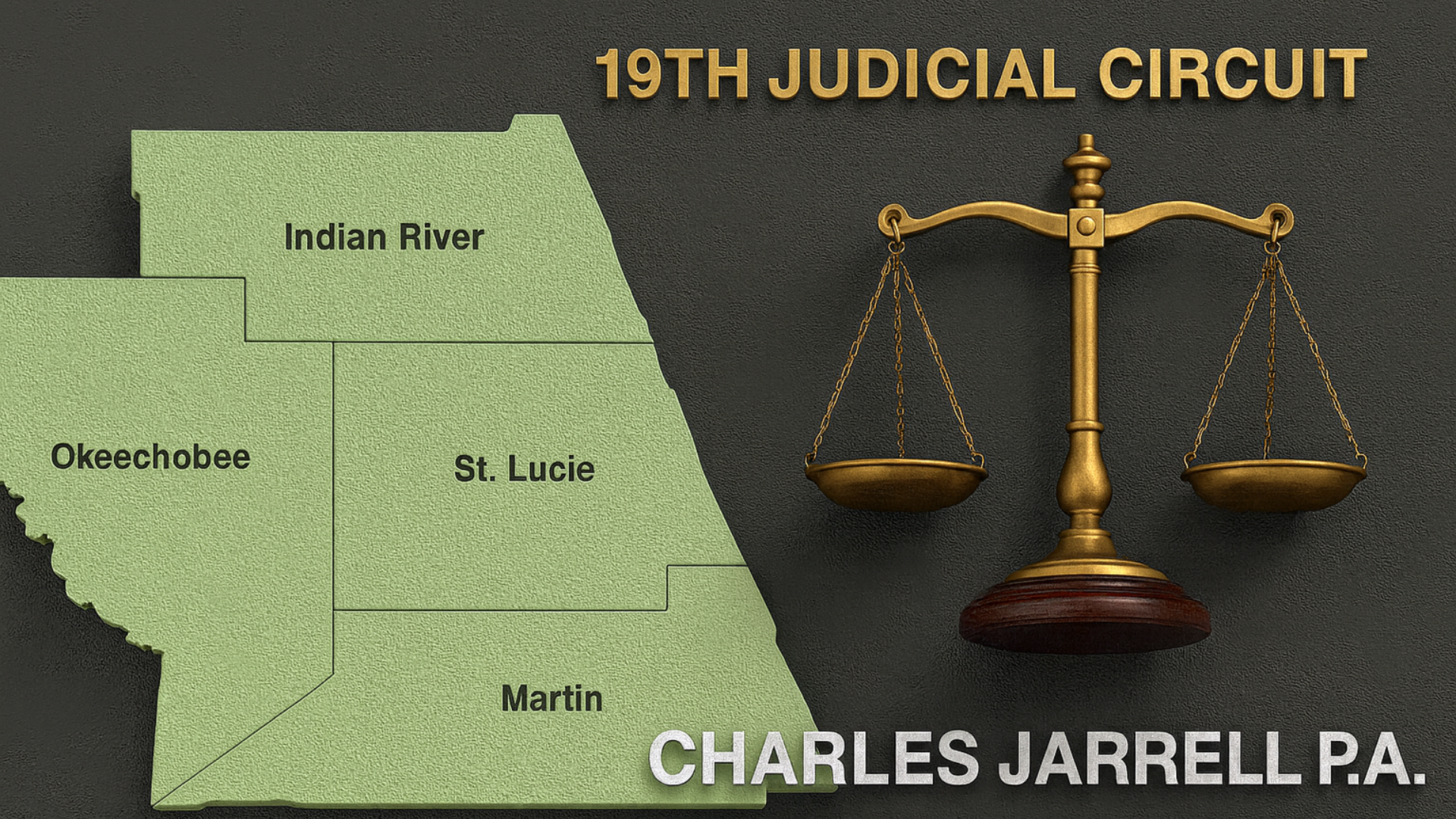
Divorce can be one of life’s most difficult transitions. Charles “Eddie” Jarrell provides clear guidance, steady support, and strategic representation to help you move forward with confidence while protecting your rights under Florida law. Divorce in Florida is not just about ending a marriage. It involves important decisions that will affect your finances, your children, and your future. Eddie works to protect your legal rights, help you make informed choices, and achieve fair results that allow you to move forward. His approach combines legal skill with practical problem-solving to reduce conflict and focus on solutions that work for you and your family.
A Florida divorce can involve a wide range of issues, including:
- Division of assets and debts under equitable distribution laws
- Determining if alimony (spousal support) will be paid, and how much
- Creating a child custody (time-sharing) plan that serves your child’s best interests
- Calculating fair child support based on Florida’s guidelines
- Resolving disagreements through mediation or, if necessary, in court

Florida is a no-fault divorce state, meaning you do not have to prove wrongdoing to end your marriage. Legally, divorce in Florida is known as a “dissolution of marriage.” The process can be straightforward when both spouses agree on all terms, or it can become complex when there are disputes over property, finances, or children. Florida law follows the principle of equitable distribution for dividing marital assets and debts, and it requires that all decisions involving children serve the best interests of the child. A divorce case may also involve determining alimony, creating a parenting plan, and setting up child support orders. Eddie’s role as your attorney is to explain each step, prepare and present your case effectively, and guide you toward outcomes that protect your long-term well-being.
Filing for Divorce in Florida
To file for divorce in Florida, at least one spouse must have lived in the state for six months or more. The process begins with filing a Petition for Dissolution of Marriage in the appropriate county court. (Indian River County divorce cases, for example, are filed at the courthouse in Vero Beach.) The petition outlines your requests on issues like property division, alimony, and child arrangements. Florida is a no-fault state, so the only required ground is stating that the marriage is “irretrievably broken.” Eddie ensures that all required documents are completed accurately and filed on time, preventing costly delays or procedural issues that could work against you.
Uncontested Divorce in Florida
An uncontested divorce is often the fastest and most cost-effective way to end a marriage in Florida. In an uncontested case, both spouses agree on all major issues, including how to divide property, whether any alimony will be paid, and arrangements for child custody and support. Eddie helps formalize your agreements into a clear, legally binding settlement. He will draft and review all documents to ensure they meet Florida’s legal requirements and truly protect your interests before you submit them to the court. With an experienced Florida divorce lawyer guiding the process, even an amicable separation can be handled with thoroughness and attention to detail.
Contested Divorce in Florida
When spouses cannot agree on one or more important issues, the divorce becomes contested and may require mediation, court hearings, or a trial before a judge. Contested divorces often involve disputes over child custody, property division, or financial support. Eddie prepares thoroughly for contested matters by gathering evidence, consulting with experts (such as appraisers or child psychologists) when needed, and building a strong case to support your position. He is skilled in negotiation and will strive to reach a fair settlement out of court, but he is also fully prepared to advocate for you in the courtroom if an agreement cannot be reached.
Equitable Distribution of Assets and Debts
Florida law requires that marital assets and debts be divided equitably (fairly) between spouses during a divorce. Equitable distribution does not always mean a 50/50 split - the court may consider factors such as the length of the marriage, each spouse’s contributions (financial and non-financial) to the marriage, and each party’s economic circumstances. Eddie works diligently to identify and value all marital property (and determine what qualifies as non-marital property that might be kept separate). He then advocates for a fair distribution that protects your financial future. Whether your case involves a family home, retirement accounts, or other valuable assets, Eddie will ensure no asset or debt is overlooked and that you receive your fair share under Florida law.
Alimony (Spousal Support) in Florida
Alimony may be awarded in Florida to provide financial support to a spouse who is at an economic disadvantage after divorce. Florida law allows for several types of alimony, including temporary, bridge-the-gap, rehabilitative, and durational alimony. (Permanent alimony for new divorces was eliminated as of 2023.) Courts look at factors such as the length of the marriage, the standard of living during the marriage, each spouse’s earning capacity and financial resources, and the contributions of each spouse to the marriage (for example, one spouse may have sacrificed a career to raise children). Eddie evaluates all of these factors to develop a strategy either to pursue the alimony you need or to defend against an unfair alimony request. He will present a strong case to ensure any spousal support order is fair and sustainable - whether you are the spouse seeking support or the one who may be required to pay it.
Child Custody Guidance in Indian River County, Florida
When the future of your child is at stake, you need more than just information. You need clear, compassionate guidance through the legal maze of custody. Eddie provides exactly that - step-by-step support to help you understand your options under Florida law and move forward with confidence. Child custody matters can be emotional and complex, especially here in Indian River County, Florida, where parents must navigate state time-sharing laws and local court procedures.
Child Support in Florida
Florida has established child support guidelines that determine how much support should be paid to meet a child’s needs after a divorce or separation. The guideline formula considers the income of both parents, the number of children, the number of overnight stays with each parent, and certain child-related expenses (such as health insurance or daycare costs). The goal is to ensure that children receive appropriate financial support from both parents. Eddie makes sure that any child support calculations in your case are done accurately, using correct income figures and accounting for special expenses or needs. He can identify unique circumstances - such as a child’s medical needs or a parent’s temporary unemployment - that might justify deviating from the standard guideline amount. Whether you will be receiving or paying support, Eddie will strive for an order that is fair, enforceable, and truly in the best interest of your child.
Mediation in Divorce
Mediation is a structured negotiation process in which a neutral third-party mediator helps spouses resolve disputes amicably. In Florida, most divorce cases go to mediation before any final court hearing. Mediation can save time, reduce legal costs, and allow you and your spouse to retain more control over the outcome by crafting your own agreement. Eddie prepares his clients thoroughly for mediation by clarifying your goals, gathering all necessary information, and developing a negotiation strategy. During the mediation sessions, he will advise you and help evaluate settlement offers to ensure you don’t agree to terms that are against your interests. If an agreement is reached, Eddie will review the mediated settlement to make sure it’s fair and properly documented. If you cannot reach an agreement in mediation, Eddie will be ready to proceed with a court battle on your behalf.
High-Asset Divorce Considerations
Divorces involving substantial assets or complex finances require an extra level of diligence and expertise. These high-asset divorces may include ownership of businesses, multiple real estate properties, large investment portfolios, high-value collectibles, or significant debts. Such cases often require detailed financial investigation and the use of experts like forensic accountants or business valuators. Eddie has experience handling high-net-worth divorce cases and works with trusted financial professionals to uncover and appraise all marital assets. He will ensure that assets like business interests or retirement accounts are properly valued and that factors such as tax implications are considered when negotiating a property settlement. The goal is to preserve your wealth and secure a fair division of the marital estate. Eddie’s strategic approach in high-asset cases protects clients from unfair settlements and helps prevent hidden assets or undervaluation from undermining your rights.
Post-Divorce Modifications in Florida
Life doesn’t stand still after a divorce is finalized. Job changes, relocations, remarriage, or changes in children’s needs can all create a need to modify an existing court order. Florida law allows for modifications of parenting plans, child support, or alimony when there has been a substantial change in circumstances since the original order. For example, a significant increase or decrease in one parent’s income, or a parent’s need to move a long distance for a job, might justify a modification of the custody arrangement or support amounts. Eddie assists clients in petitioning the court for post-divorce modifications and also in defending against unwarranted modification requests. He will explain what changes the law considers “substantial” and gather the evidence needed to demonstrate why an adjustment is (or is not) justified. By presenting a clear and compelling case, Eddie helps ensure that any updated court orders reflect your current reality and protect your rights.
Enforcement of Divorce Decrees
Sometimes a former spouse fails to follow the terms of a divorce decree or settlement agreement. This could mean refusing to pay required child support or alimony, failing to turn over property as directed, or interfering with the other parent’s time-sharing rights. In these situations, enforcement action may be necessary to make sure the divorce agreement is honored. Eddie guides clients through enforcement proceedings to hold a non-compliant ex-spouse accountable. He will file the appropriate motions (such as a motion for contempt or enforcement) and represent you in court to seek remedies for the violation. Remedies can include requiring payment of past-due support with interest, wage garnishment, seizure of property, payment of your attorney’s fees, and even jail time in extreme cases of willful disobedience. Eddie’s prompt and firm approach to enforcement helps ensure that the outcome you fought for is not just a piece of paper. You can count on him to take the legal steps needed to secure compliance and protect your rights under the court’s order.

A divorce is more than just a legal proceeding - it’s a turning point in your life. With the right representation, you can protect your rights, reduce stress, and lay the foundation for the future you want and deserve. Eddie is dedicated to guiding clients through the Florida divorce process with professionalism, respect, and a focus on achieving fair, lasting results. You will have an attorney who listens to your concerns, explains your options in plain language, and fights for your interests at every step. If you’re facing a divorce in Vero Beach or anywhere in Florida, don’t go through it alone. Contact our office to schedule a confidential consultation with Charles “Eddie” Jarrell. Get the support of a Florida divorce attorney who will treat your case with the urgency and care it deserves, and start moving forward with clarity and confidence.